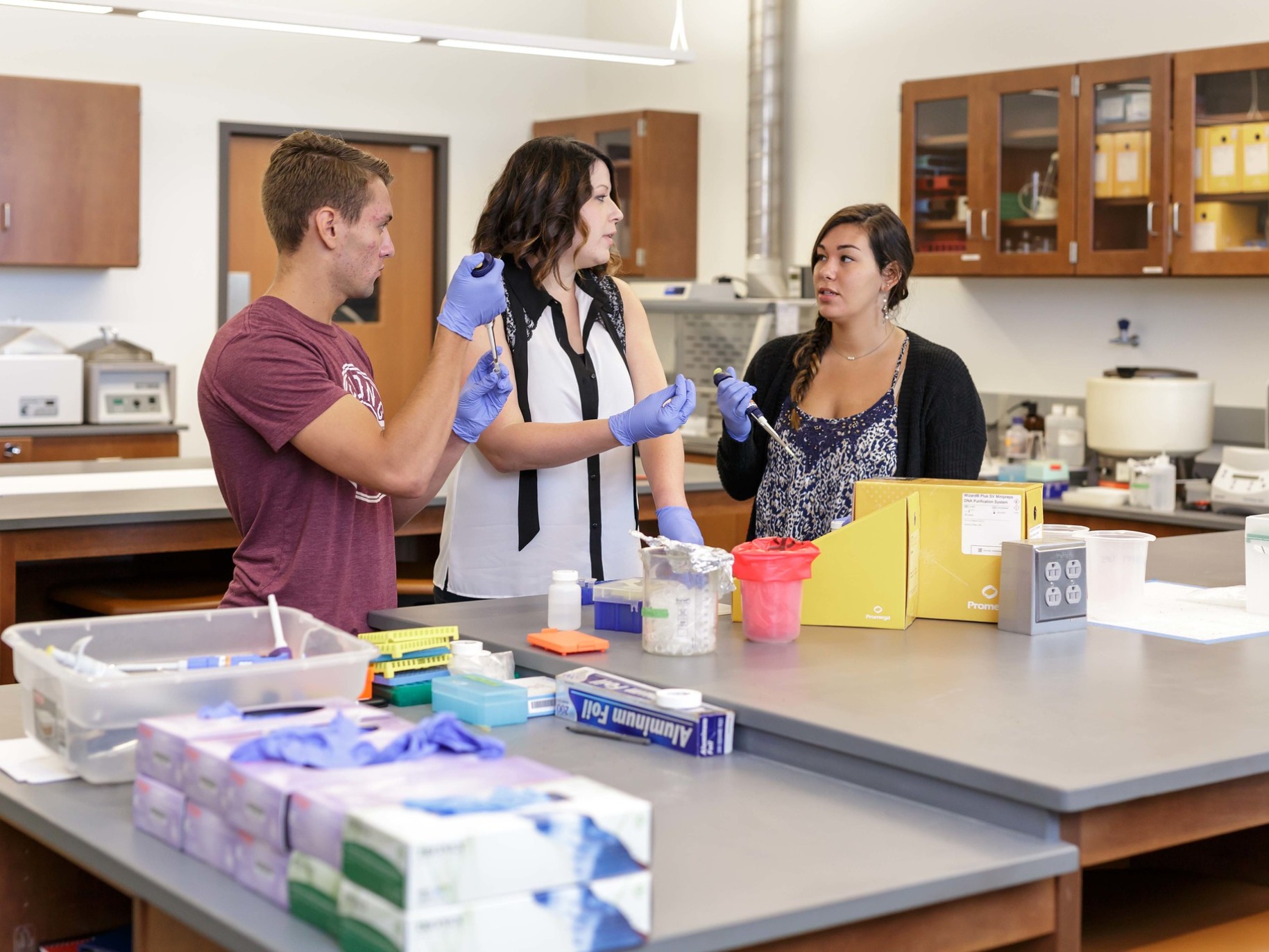- Home
- >
- APU Articles
- >
- News Article
Allied Health Students Are Building Community Through Mentorship, Hands-on Learning, and Faith Integration
October 08, 2025 | Category Health Sciences | Written By Sophia Lee

Allied Health professionals, such as physical therapists, speech-language pathologists, nutritionists, clinical lab scientists, and others provide important support services in the healthcare system. Pursuing these types of careers requires a strong foundation in health sciences. Azusa Pacific University’s allied health program provides this essential foundation for students seeking careers as allied health professionals. Students experience a rigorous education that equips them with a strong foundation in the sciences, preparing them to enter into graduate programs or directly into the workforce, mentored by dedicated faculty that allow them to excel in a multitude of healthcare environments.
Allied health offers two tracks for students who are pursuing health care, a bachelor of arts (BA) and bachelor of science (BS). The BA focuses on classes that emphasize psychology and kinesiology as well as biology and chemistry. “If you’re thinking about becoming a physical therapist, you want to fully understand the body and how it moves but you also need to have that emotional depth to holistically support your patients,” said Jennifer Young, PhD, chair of the department of Biology and Chemistry and associate professor. The BA focuses on building an understanding of the human body as well as the emotional connection needed to work with patients. The BS builds this emotional connection and dives deeper into the allied health sciences through a focus on specific biology and biochemistry courses that focus on a molecular understanding of the body. Students in this major are typically looking to enter physician assistant programs or become research assistants, for example.
Faculty Mentorship Supports Student Success
Regardless of which focus a student chooses, they will have the opportunity to have deep discussions with the faculty teaching them. “We have open door policies, with lines of students who come to ask questions and have meaningful conversations,” said Ryan Somers, PT, DPT, assistant professor. “Faculty have research assistants, and weekly events where students are being prepared for the next level.” Somers is dedicated to fostering community, inviting large groups of students to gather together over meals at his home. On top of that, APU faculty aim to cultivate students who not only succeed academically but grow personally and spiritually so that they can be a light in the healthcare industry.
Through one-on-one mentorship and fostering relationships, allied health majors are connected to a supportive community and learn how to pursue themselves and others with care and compassion.
Students are encouraged to study with their fellow classmates in addition to seeking mentorship from professors. “This program does not have the mentality of ‘For me to succeed you can’t,’” said Nicole Segura ’27. “We study together in the library, sharing flashcards and our tricks for remembering challenging content. We know that the coursework is rigorous so we help each other through it.” Students choose to foster community instead of fighting to be at the top of the class. This kind of caring atmosphere helps everyone thrive.
Learning Faith, Respect, and Empathy
As a Christian university, APU includes faith integration in all courses. In the allied health program, faculty make sure to emphasize the humanity of patients. When working with patients, it is essential that healthcare workers remember that they are more than just people with a diagnosis or treatment. “Every professor has stressed that what we are learning directly affects someone’s life. We are learning about diseases and therapies that will be a part of our daily routine but they are impacting our patient’s lives not just our 9-5,” said Segura. This mentality begins when students are freshmen, and extends to their professional years.
The allied health program prepares students for a vast number of healthcare roles through rigorous courses and hands-on learning. APU is one of few institutions that allows undergraduate students to learn with human cadavers. “When you are learning about the body, one of the best ways to learn about it is to physically interact with it,” said Young. “ Cadavers help emphasize what the students are actually studying, the human body. They give students a depth that they cannot get from a textbook.” Working with cadavers provides students real world experience that they otherwise would not receive until graduate school. It also provides them with an opportunity to gain a greater sense of empathy for the patients they will work with in the future. “The faculty teach students to treat the cadavers with respect and dignity, to know that they were once a living person who was made in the image of God,” Young said. “When people donate their body to science, we respect them as a human being as well as a donor for students to interact with and learn from.”
Allied Health Students are given a strong foundation for whatever profession they may pursue in the future. Whether students intend to go on to graduate school for physical therapy, medical diagnostics, health education, or other healthcare professions, or enter the workforce immediately after graduation, they are prepared and supported. “Our program provides the marriage between applied sciences and hard sciences so that students are extremely well rounded going into their next step,” said Somers. “I am proud of my students that go on to physical therapy or any other medical graduate schools. They are rockstars.” Graduate programs are constantly looking to recruit APU’s allied health majors to their programs. They know that they are gaining hard working and empathetic students. This program is creating future healthcare workers that have a deep understanding of the human body and the humanity of the patient. They are graduating from this program ready to be much needed lights in the world.